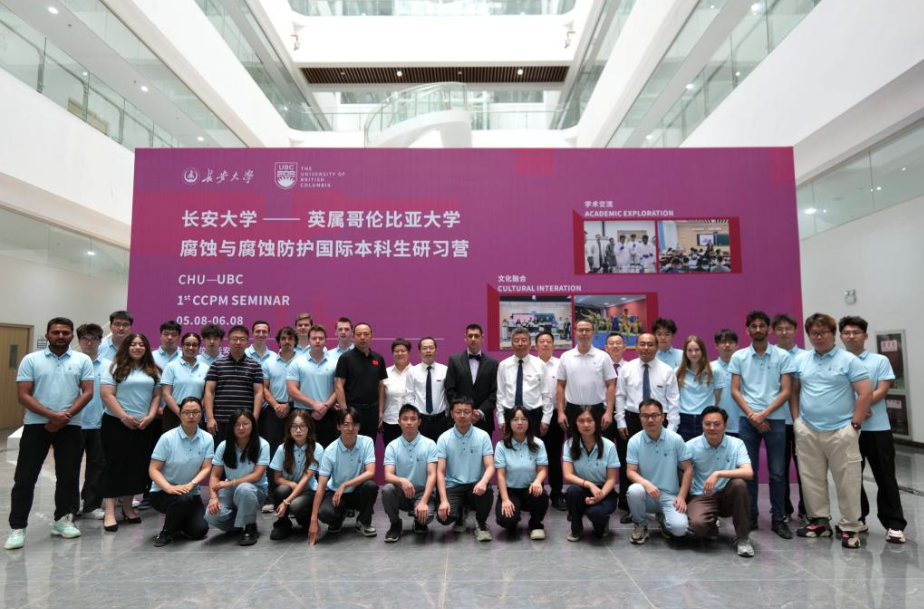On the morning of June 4th, the closing ceremony for the "International Undergraduate Program on Corrosion and Corrosion Protection", jointly organized by our school and the Faculty of Applied Science at the University of British Columbia (UBC), was held in Zhiyuan Building. Vice President Fan Wen and Professor Ray Taheri from UBC attended the ceremony. The event was also joined by all members of our school's Party and administrative leadership, relevant officials from the College of International Education and the Physical Education Department, as well as all program participants. The ceremony was presided over by Wang Zhenjun, Secretary of the Party Committee of our school.
Oration by Vice President Fan Wen
During the closing ceremony, Fan Wen fully affirmed the productive outcomes of this program. He noted that the program represents a significant achievement of Chang'an University in advancing its "Double First-Class" initiative and deepening international education cooperation. It also stands as a key measure in implementing the university's "Talent Cultivation Strategy for Internationalization." The program has not only enabled students from both institutions to observe, contemplate, and solve problems from an international perspective but has also helped our university validate the feasibility of a new educational model driven by both "academic and cultural" engagement. This experience provides guidance for future international cooperation and exchanges.
Wang Zhenjun noted that we should build upon the bond of materials science to carry forward the Silk Road Spirit in the new era. He expressed the hope that the two universities would extend cooperation across multiple fields to jointly cultivate more outstanding talents with "multicultural competence and a global perspective.

Group Photo
It is reported that the month-long program pioneered a teaching model featuring "a joint class of Chinese and international students co-instructed by faculty from both universities". Students engaged in mutual learning in the classroom and collaborated on experiments at the lab benches, completing a comprehensive research training cycle from theory to practice. Moreover, the cultural exchanges sparked innovation through the exchange of diverse perspectives. The program integrated fundamental knowledge of materials science with cross-cultural collaboration, offering UBC participants exposure to Chinese language courses and traditional Chinese martial arts. Activities also included visits to historical sites in Shaanxi and exchanges with local high-tech enterprises, showcasing China's profound cultural heritage and rapid technological advancement.

